DPW Keeps the Water Flowing
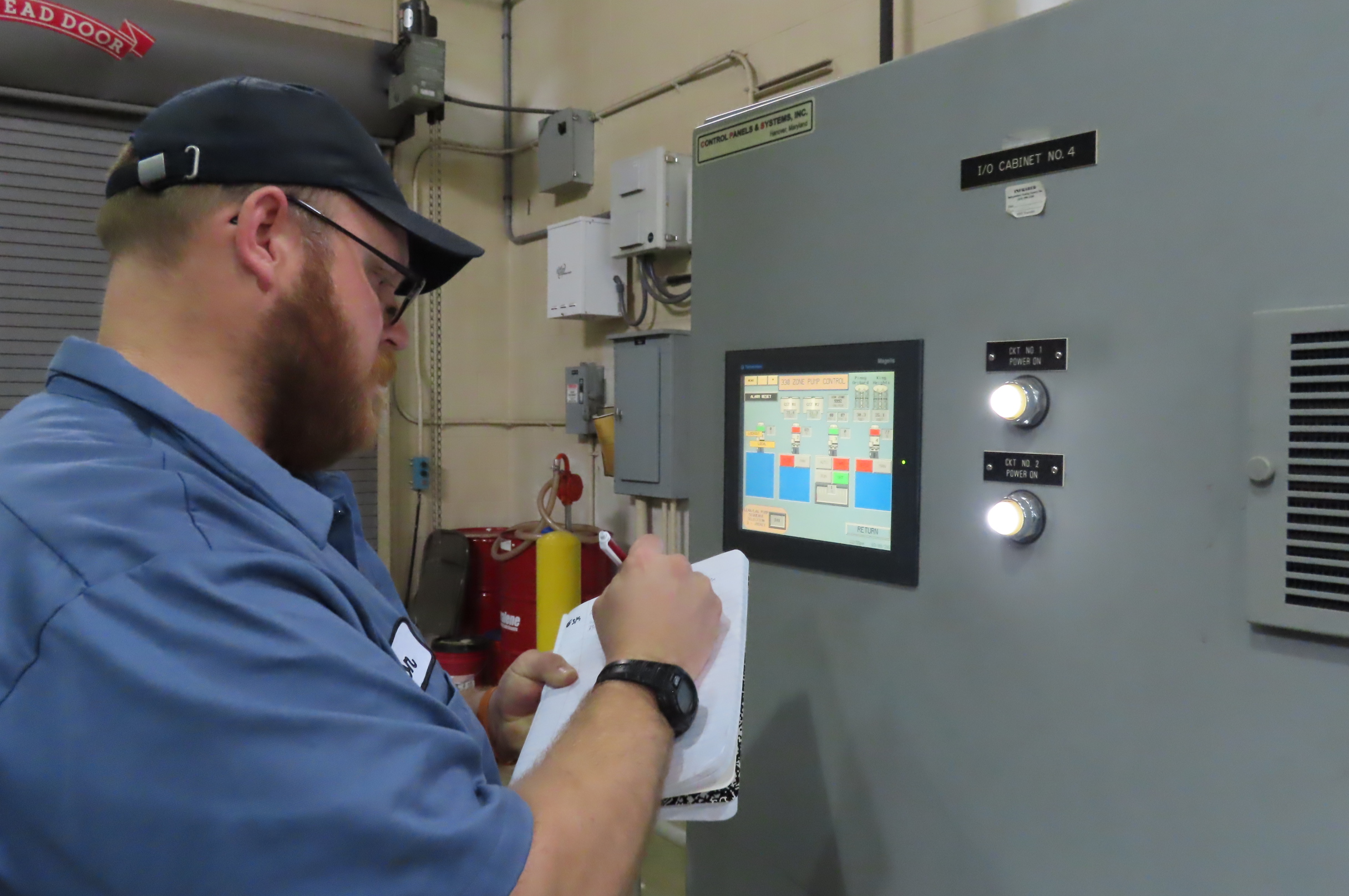
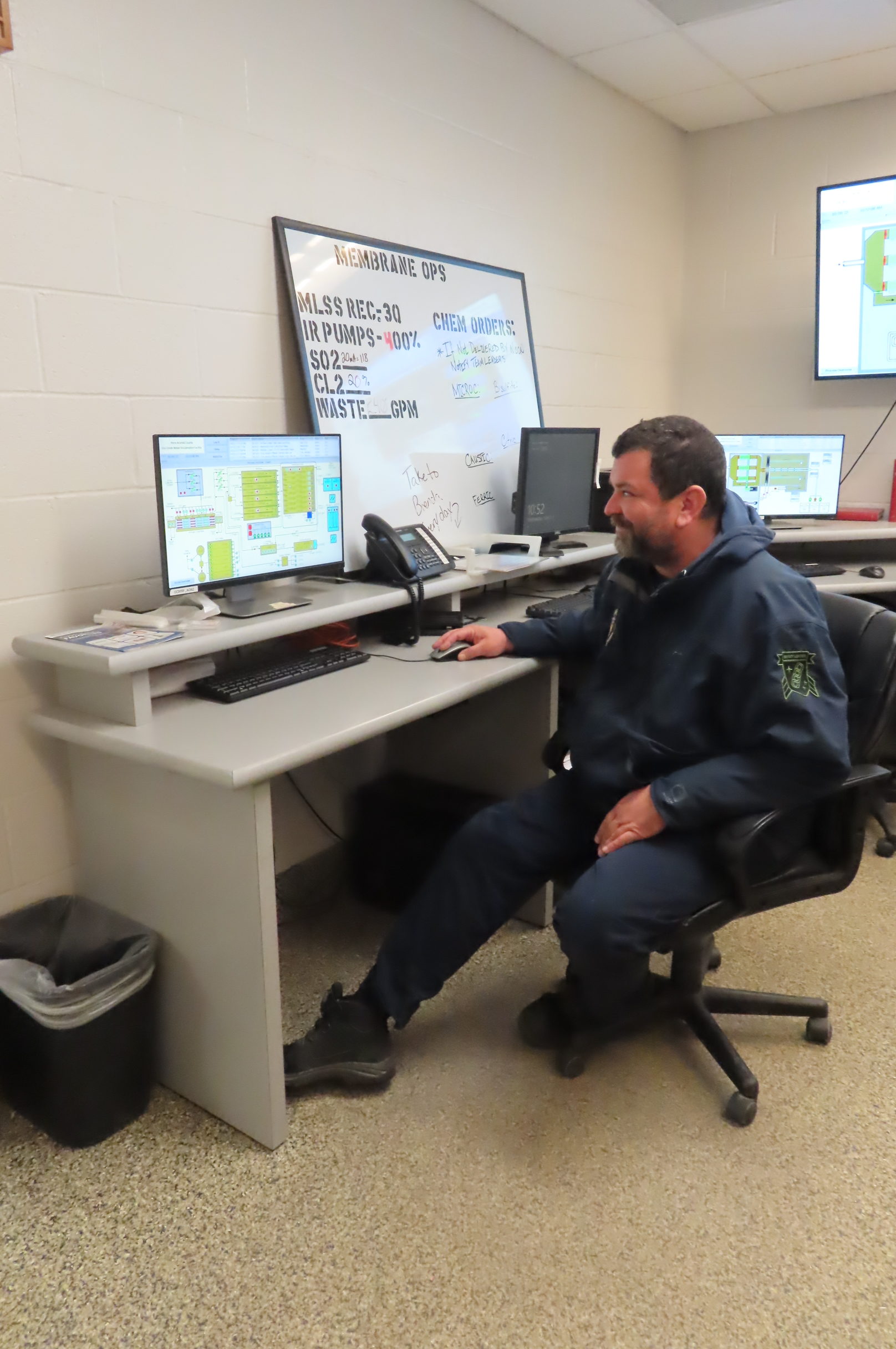
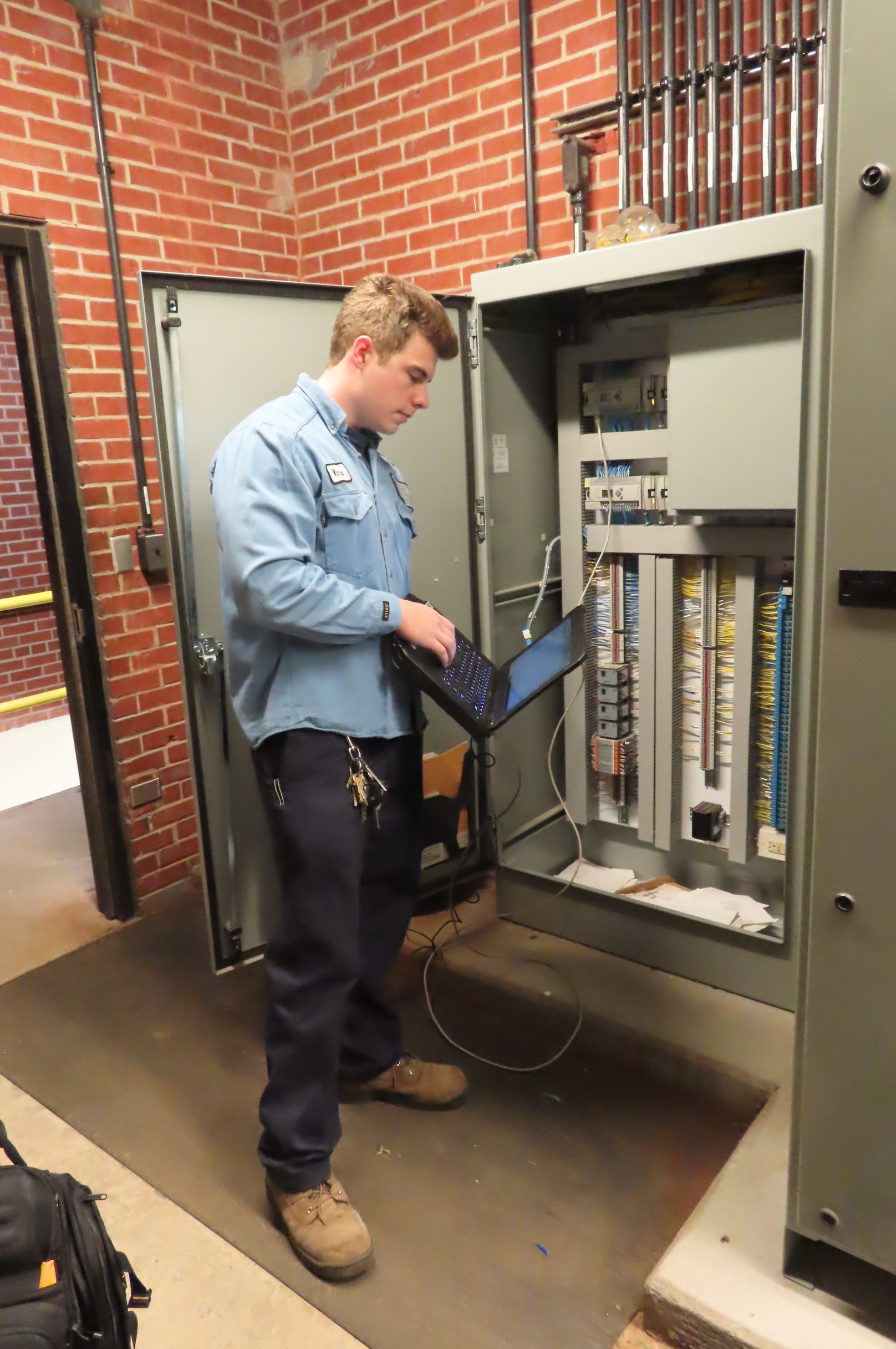
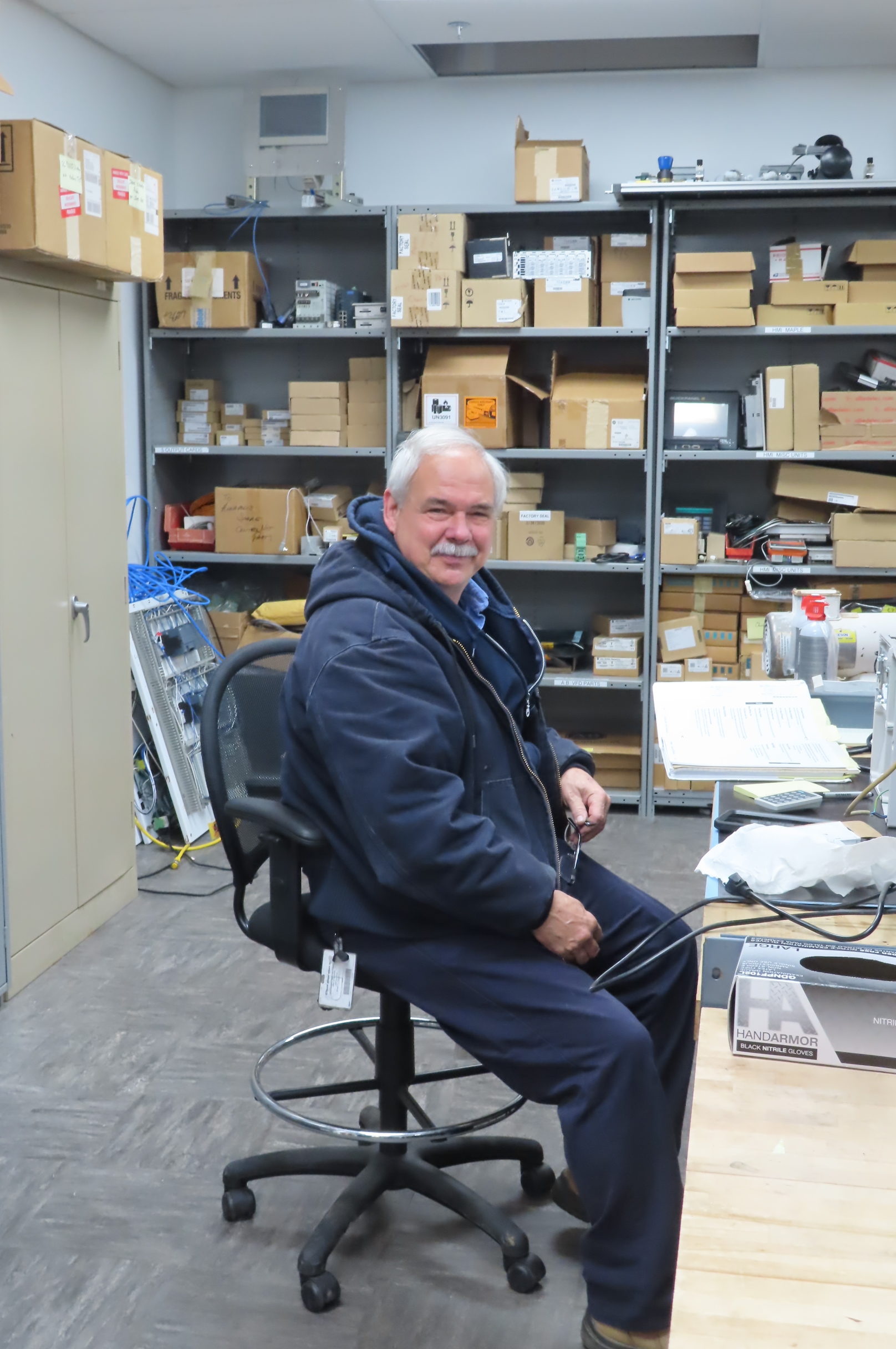
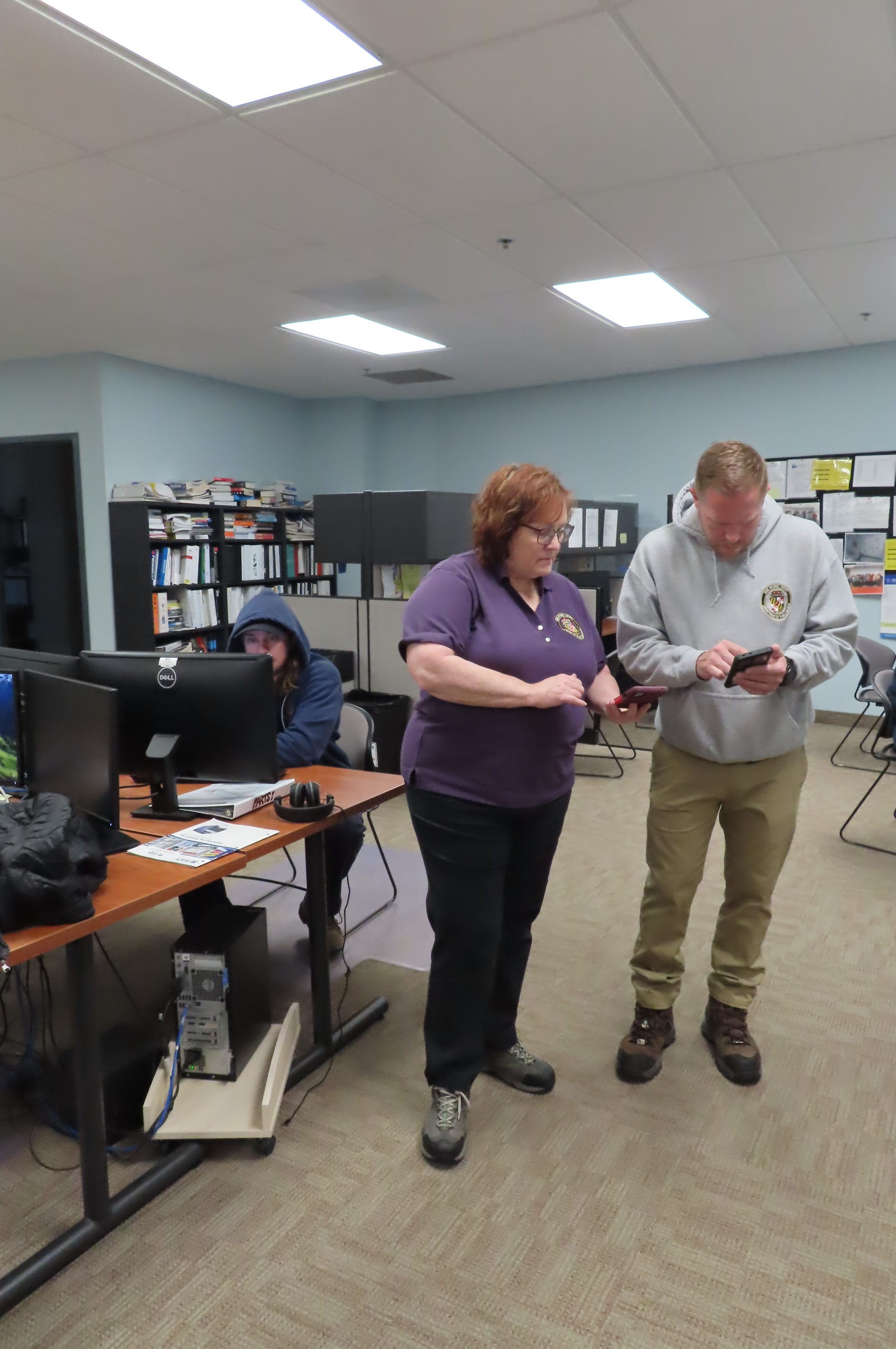
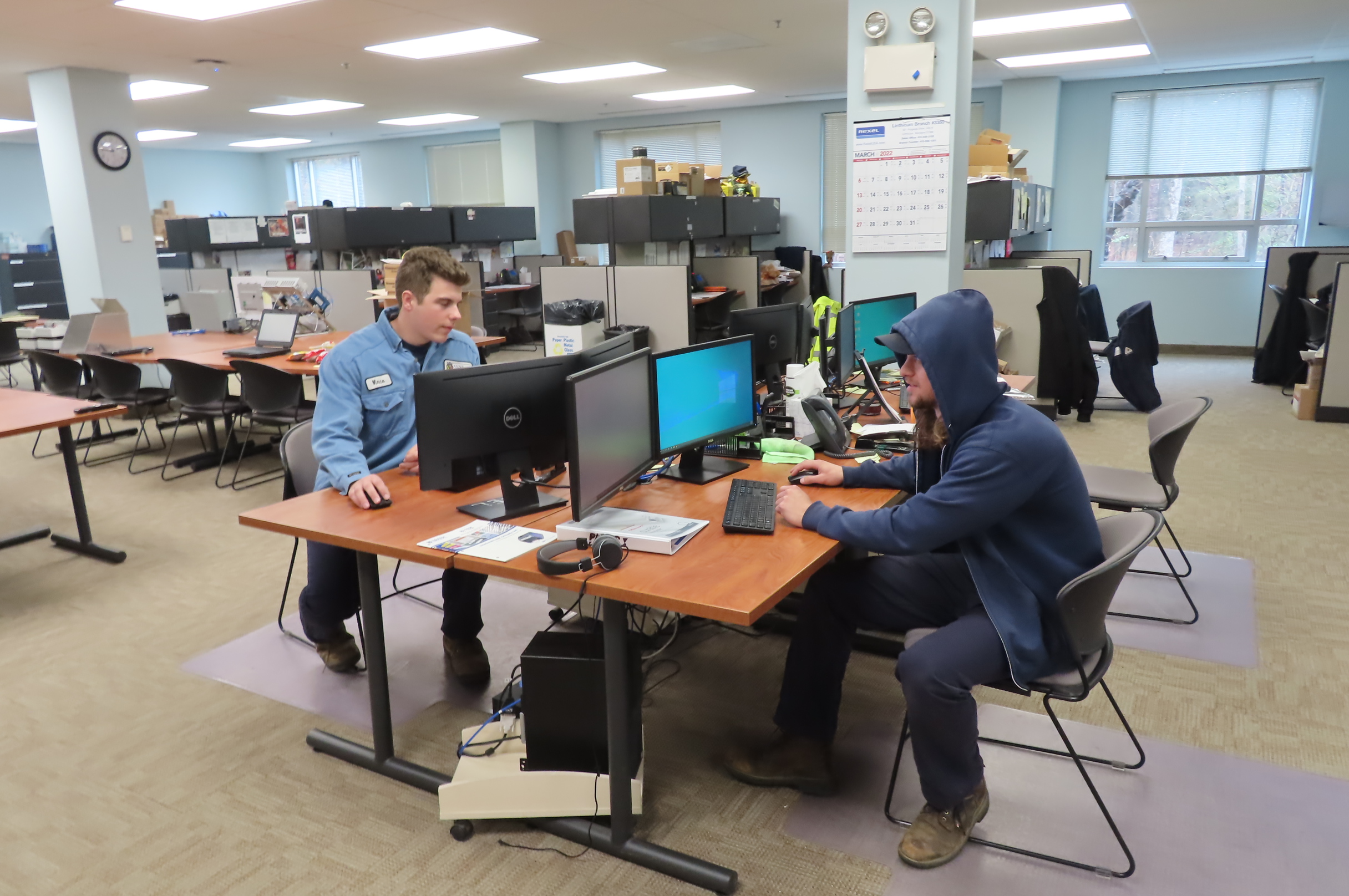
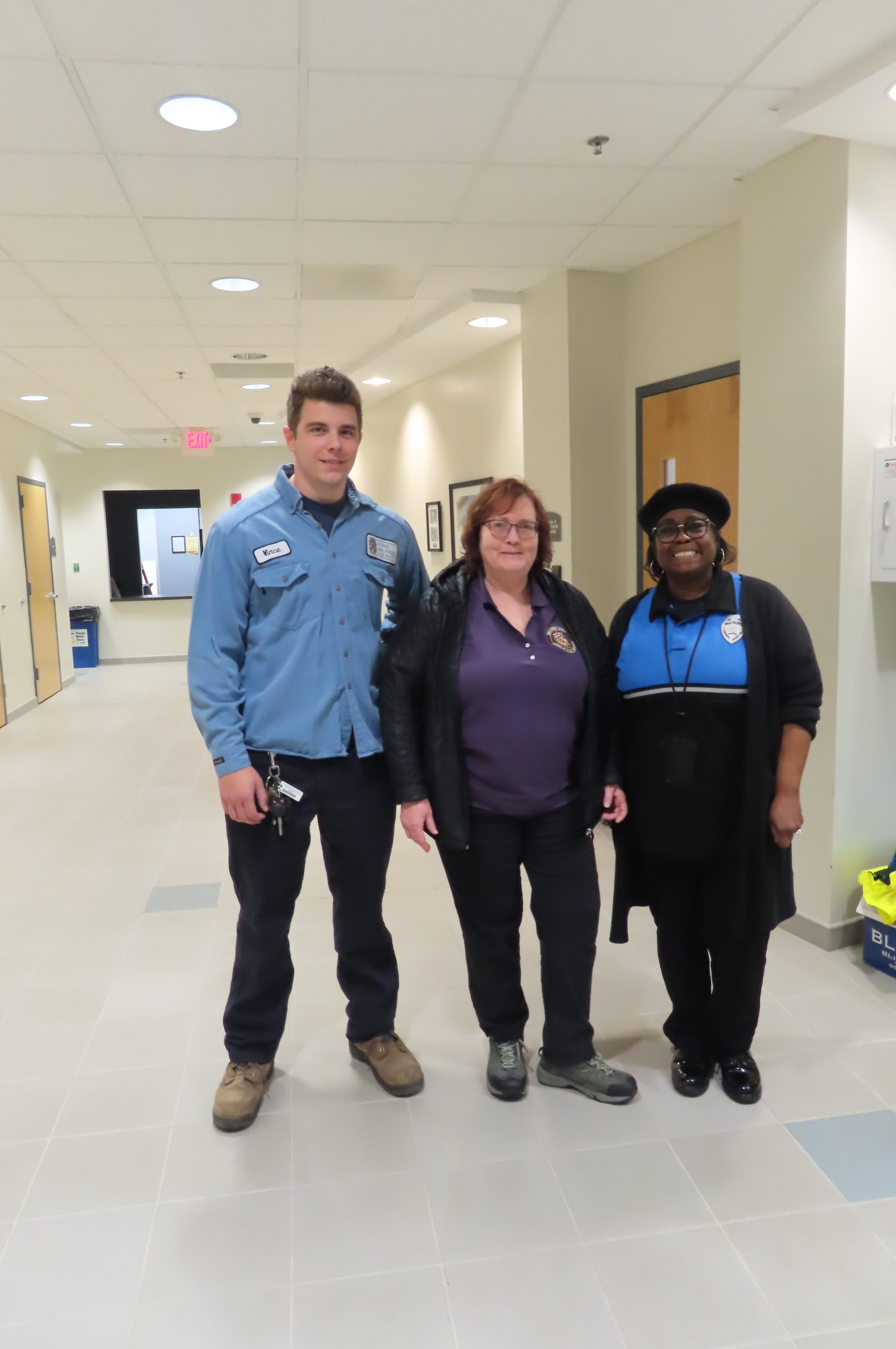
By Susan Nolan
Flush a toilet. Wash your hands. Fill a coffee pot. Shower. Brush your teeth. Most of us use several gallons of water each morning before leaving the house. And we do so without giving it much thought. Yet, Anne Arundel County Department of Public Works delivers 13 billion gallons of clean water to more than 118,000 customers each year.
“Most people don’t really think about public utilities until something goes wrong,” says Vince Bruce, “and we work hard to make sure that doesn’t happen.”
Bruce, a native Annapolitan, has been working as an electrical technician within the Department of Public Works Bureau of Utility Operations for five years. The CAT-South graduate says he comes by the work naturally. “My dad works for the Department of Public Works too, and my grandfather was an electrician.”
In March 2020, everyday life became different—and more difficult for everyone, including utility workers.
“In the beginning, it was scary,” Bruce says, recalling when COVID-19 first hit causing massive shutdowns. “No one really knew how it was spreading, and we were working in wastewater. Of course, we were also already taking precautions.” DPW employees wear various protective gear when working in hazardous conditions. He and his colleagues were equipped with gloves, masks, and Tyvek suits long before the pandemic.
“Social distancing made communication harder,” Bruce adds, “But we never stopped working.”
Terrell Jones and Ron Thomas, both DPW employees at the Crofton Meadows Water Treatment Plant echo Bruce’s sentiment. Jones, a team manager, says, “We are essential personnel, just like the police and the hospital employees. We all just kept working, but you didn’t hear about us because we were behind the scenes.” Thomas, a site operator, nods in agreement.
The agency’s ability to keep water flowing, trash picked up and roadways maintained during the darkest days of the shut-downs was not by accident. It took planning at every level. Chris Phipps, the Director of the Department of Public Works, oversees five county bureaus—Engineering, Highways, Utility Operations, Waste Management Service, and Watershed Protections and Restoration. “From the beginning,” he says, “we were complying with protocols necessary to keep our workforce safe and to protect the public. Our highest priority is always public safety.”
With a full two-thirds of the department’s employees engaged in hands-on fieldwork, telecommuting was not a viable option for most. “You can’t fix a broken water main from your home,” Phipps explains, “but at the same time, we were concerned that one outbreak of COVID could leave entire teams unable to work.” The solution was to divide the workforce into two shifts and have them work on alternating weeks.
One of the biggest changes the department experienced was with waste management. With more residents working from home and students attending classes online, residential discards—recycling and trash—increased by approximately 20 percent. Residential water usage also increased dramatically—and with that, questions about bills and requests for testing water meters.
All bureaus within the department experienced backlog. “Prioritizing our projects became even more important during COVID,” says Phipps. “Many preventive maintenance projects were put on the back burner and now, with things returning to normal, we are doing the best we can to catch up.”
Anne Arundel County’s commitment to providing the public with clean water and other services has not gone unnoticed. In 2020, the DPW’s Utility Operations earned three platinum awards and three gold awards from the National Association of Clean Water Agencies. Platinum Awards recognize 100 percent compliance with permits over a consecutive five-year period. Gold Awards are presented to facilities with no permit violations for the entire calendar year.
The national recognition is only one source of pride for the DPW employees. Over 70 percent of DPW’s employees live within the county and are customers of the same services they provide. “This contributes to the pride and to the friendly work atmosphere,” says Claire O’Neill, Public Affairs Liaison and Safety Trainer.
O’Neill represents the DPW at job fairs and other community events that were either cancelled during the pandemic or were held virtually. “I’ve missed the interaction and the opportunity to teach people about the services we all use and depend on,” she adds.
Despite the competitive pay, generous benefits package and friendly work environment, DPW is facing a staffing shortage. “We have vacancies because people retire and are promoted,” O’Neill says. “We are always hiring, and this is a great place to work. Many of the positions do not require college degrees.” She also notes that during her tenure with DPW, she has seen more women promoted and hired into leadership positions.
Terrell Jones says hiring was ongoing even during the pandemic. “It’s the best job, hands down,” he said. “I appreciate the fresh influence and awareness” new employees bring to the department.
Learn more: aacounty.org/departments/public-works/careers/.
Stop the Leaks
In addition to delivering clean water to homes and businesses, the DPW strives to keep the cost of utilities low. Fixing easily corrected household water leaks could save residents approximately 10 percent on their water bill.
What’s the best way to know if your toilet tank is leaking? Follow these steps to run a simple test:
- Remove lid from toilet tank.
- Pour 15 to 20 drops of colored liquid such as leftover coffee, strong tea, or food coloring into the tank.
- Let it sit for 20 minutes without flushing.
- Check the bowl. If color has seeped into the bowl, you have a leak.
- Turn off the valve at the base of the toilet until the leak is repaired.
Keep Our Sewers Fat-Free
Grease is a common by-product of cooking. It comes from oil, meat fat, butter, lard and shortening. When rinsed down a sink or flushed down a toilet, it—along with food scraps, sauces, and dairy products–will solidify and stick to the interior of pipes, both in your home and beyond your property line causing clogs. These clogs may result in:
Raw sewage overflowing into homes and public spaces.
Exposure to disease-spreading bacteria and germs.
Expensive and unpleasant clean-up paid for by home and business owners.
Increased maintenance expenses incurred by DPW and passed along to consumers.
To prevent food-related sewage clogs, scrap grease and food scraps into a can or the trash for disposal (or recycling where available.) Always use baskets and strainers in sink drains to catch solids and empty into trash.
CAUTION: Home garbage disposals do not prevent grease and other foods from clogging sewer pipes. Moreover, hot water and detergents that claim to dissolve grease only pass it down the line where it causes problems elsewhere.
Disposable Does NOT mean Flushable
Toilets were designed for one purpose—to flush human bodily waste from our homes and into sewer pipes. Paper towels and other household products disposed of via a flush can accumulate and create clogs in public sewer pipes and at local wastewater reclamation facilities. Even if a product is labeled “flushable,” the Water Environment Federation warns that the safest, most environmentally friendly disposal is likely a garbage can.
WEF also advises against flushing certain liquids. Products such as window cleaner, paint thinner, and pharmaceuticals can negatively impact water quality. For more information about the proper disposal of household waste, visit www.wef.org/HouseholdWaste.
